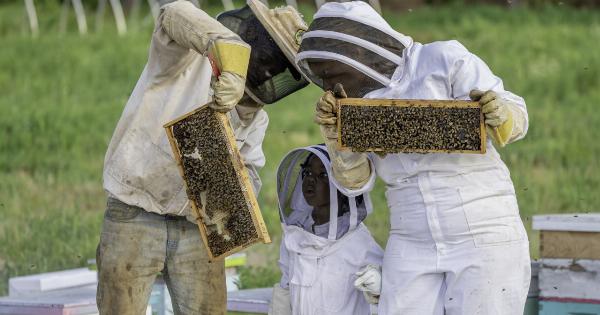Condoms are a popular method of contraception used by people of all ages for both preventing unwanted pregnancy and protecting against sexually transmitted infections.
However, despite their effectiveness, sometimes they can fail, and when they do, it can be a worrying and stressful situation.
If you find yourself in this position, it’s important to know what steps to take to minimize your risk of pregnancy and STIs and to protect your health and well-being.
What Are the Causes of Condom Failure?
Condom failure can happen due to various reasons. Here are some of the most common ones:.
Poor Quality Condoms
Cheap or expired condoms are likely to break during use, so you should always choose a reliable brand that has been tested and approved by health organizations.
Ensure that the condoms are within their expiration date before using them and never reuse them or use them after the expiry date has lapsed.
Incorrect Use of a Condom
Condoms must be used correctly every time you have sex, failure to do so increases the chances of them breaking. You should leave enough room at the tip of the rubber to provide space for the semen and pinch the top of the condom while rolling it down.
It’s also crucial to remove the condom immediately after ejaculation while still holding it at the base.
Compatibility Issues
Not all types of condoms are compatible with all kinds of lubricants. Oil-based lubricants like coconut oil or massage oils can interfere with the strength of the rubber and cause breakage.
It’s important to check the labels to ensure that the lube and the condom are compatible.
Condoms that Tear During Sex
Condoms can break or get damaged if they rub against sharp objects like jewelry or if there’s rough penetration during intercourse.
What Should I Do If a Condom Breaks or Slips Off?
If you notice that the condom has broken or slipped off, stop sex immediately. Here are some steps to follow:.
1. Emergency Contraception
If pregnancy is a concern, consider taking emergency contraception immediately. The “morning-after pill” is available in most pharmacies without a prescription.
2. Seek Medical Attention
In case of STI exposure, schedule an appointment with a healthcare provider for testing and treatment. It’s essential to get screened for STIs to avoid any long term health complications.
3. Assessment for Yeast Infections
Broken condoms can increase the chances of yeast infections, so it’s crucial to see a doctor if you experience vaginal itching, soreness, or abnormal discharge.
4. Inform Your Sexual Partner
If you recently had sex with a new partner, communicate with them about the condom failure and get screened for STIs before engaging in sex again.
5. Display Safe Sex Practices
To prevent future condom failure, emphasize the importance of using condoms, always checking their expiry dates, using them exactly as recommended, and never reusing them.
How to Prevent Condom Failure?
Condom failure can happen, but it’s possible to reduce the risk of it happening. Here are some tips:.
Use a Quality Condom
Invest in well-known brands of high-quality condoms available in reliable stores or at the pharmacy. Condoms that have been approved by trusted health organizations are manufactured to a higher standard and have a lower risk of failure.
Check for the Expiry Date
Always check the expiry date of your condoms before using them. Condoms that are past their expiry date will weaken over time and are more prone to breakage.
Store Condoms Properly
Heat, moisture, and light can harm condoms. Store them in a cool, dry place away from direct sunlight.
Use Lubricants Carefully
Avoid using oil-based lubricants like cooking oils or massage oils as they can damage the condom. Instead, opt for a water-based or silicone-based lube that’s compatible with the condom you plan to use.
Use Condoms Correctly
It’s important to learn how to wear condoms properly so that they don’t break during sex, and also follow instructions correctly every time you use a condom.
Avoid Any Sharp Items
Take off any sharp items like rings or bracelets that could cause breakage. Also, be aware of any teeth that may accidentally pierce the condom during an oral sex act.
Get a Regular STI Checkup
It’s important to get tested for STI’s regularly and to disclose results before sex. Knowing your status and asking your partner to disclose theirs can help minimize the risk of condom failure and/or unwanted exposure.
Conclusion
Even with the best of intentions, condoms can sometimes fail. However, you can minimize the risk of this happening by following the tips outlined above to ensure the best possible protection.
If a condom does fail, it’s essential to seek medical advice immediately to protect your health and well-being.






























